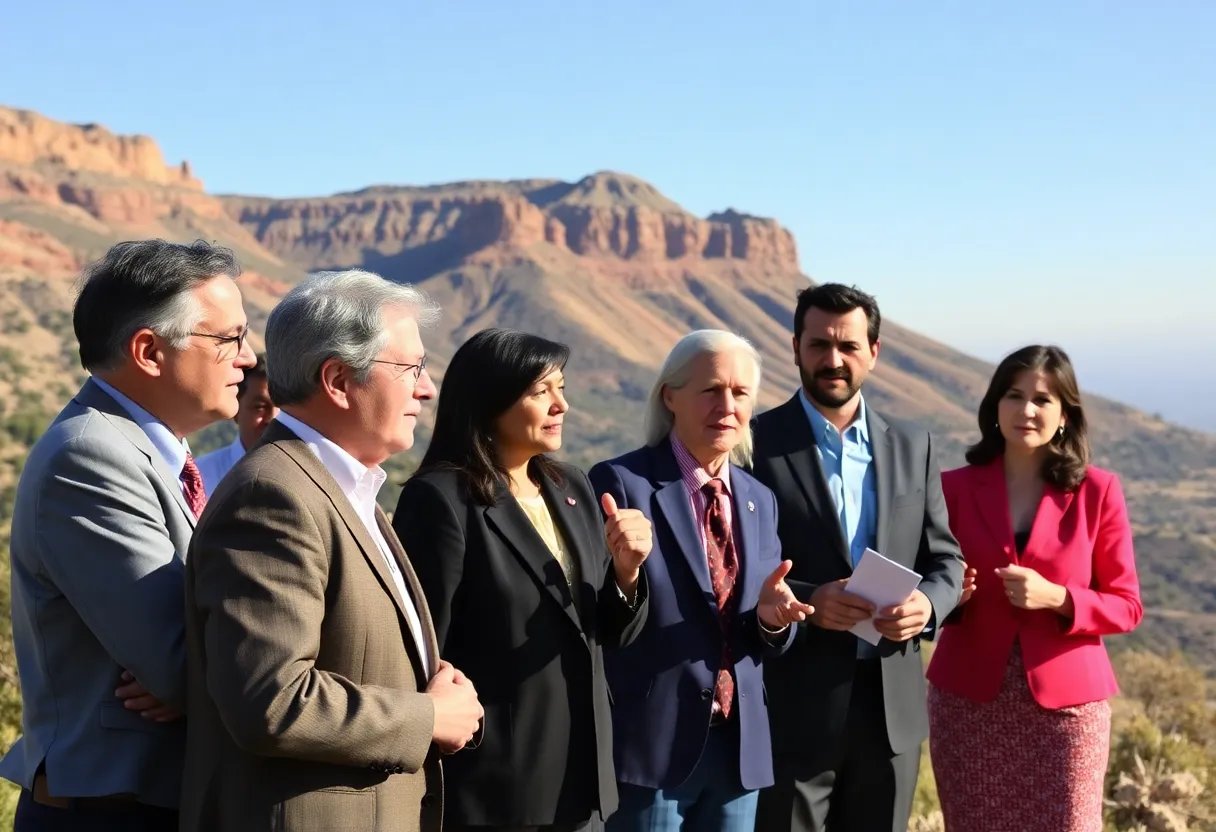News Summary
California Senate Democrats have elected Senator Monique Limón as their new leader, making her the first Latina to hold this significant position. Her leadership comes at a pivotal time as discussions around the state’s cap-and-trade program intensify, with lawmakers navigating critical environmental policy debates and budgetary tensions. Limón’s advocacy for environmental issues and bipartisan collaboration aims to balance climate action with economic priorities amid ongoing challenges related to wildfires and public transportation funding.
California Senate Democrats have made history by electing state Senator Monique Limón as the new leader of the Democratic caucus, marking her as the first Latina to hold this influential position. She succeeds Senator Mike McGuire, who will complete his term at the end of 2026. Limón’s ascent comes at a crucial time as debates around California’s cap-and-trade program intensify, with significant implications for the state’s environmental policies.
Limón, who has played a vital role in negotiations surrounding the extension of California’s cap-and-trade program, has garnered support from various environmental groups, underscoring her reputation as a strong advocate for environmental issues. Her leadership is expected to influence the direction of ongoing discussions related to the program, which aims to reduce greenhouse gas emissions through a market-based system that allows companies to purchase emission offsets.
Recent legislative actions indicate a divergence between Senate and Assembly lawmakers and Governor Gavin Newsom regarding the future of the cap-and-trade initiative. Rather than immediately adopting the Governor’s proposal, lawmakers announced their intention to engage in a legislative policy process. This decision emphasizes the importance of careful debate over the underlying mechanisms for managing cap-and-trade funds rather than rushing to action.
Resolving the cap-and-trade discussions is a priority for McGuire and Limón, especially as the end of the legislative session approaches. Senate leaders face a deadline of June 15 to pass the state budget, while Governor Newsom has until July 1 to sign it into law. The tension surrounding the budget has intensified due to contrasting funding proposals. Notably, Newsom sought to allocate $1.5 billion annually from cap-and-trade revenues to cover budget cuts for Cal Fire. However, this plan has been rejected in favor of a two-year allocation of $500 million, which is intended to bolster firefighting efforts amid ongoing wildfire crises.
Further tensions arise from Newsom’s proposal to cut $1.1 billion in cap-and-trade funding for public transit. In response, lawmakers have suggested a more balanced approach that includes a $750 million interest-free loan for Bay Area transit agencies, highlighting a commitment to maintain support for public transport initiatives while addressing budgetary constraints.
The current legislative session reflects broader goals of balancing climate action with economic priorities in light of federal rollbacks under the previous Trump administration. Lawmakers are also actively working on several energy affordability bills, although these are yet to be finalized. As business groups pose challenges to California’s stringent environmental standards, legislative representatives are adapting regulations to ensure the state can maintain its ambitious climate agenda.
Amid these discussions, a strong emphasis is placed on bipartisan collaboration in addressing wildfire challenges. Improving fire management resources has become a shared goal across party lines, particularly in a climate that threatens public safety and environmental health.
California’s cap-and-trade program, which allows polluting companies to purchase offsets, is currently under scrutiny as debates center around reforming or replacing the existing offset system. Critics argue that the current program often leads to minimal climate impact. The focus is shifting towards more effective measures that prioritize state-based investments in climate solutions, indicating a transition towards a potentially more robust environmental strategy.
With Monique Limón’s leadership and an evolving legislative landscape, California stands at a critical juncture, navigating the complexities of climate policy amid economic considerations and environmental advocacy.
Deeper Dive: News & Info About This Topic
- Politico: Limón Leads Democrats
- Google Search: California cap-and-trade
- NBC Bay Area: PG&E Climate Credit
- Wikipedia: Cap-and-trade
- San Francisco Chronicle: Cap-and-Trade Discussion
- Encyclopedia Britannica: Cap-and-trade
- ABC7 News: Forecast on Gas Prices
- Google News: California climate policy

Author: STAFF HERE MISSION VIEJO WRITER
The MISSION VIEJO STAFF WRITER represents the experienced team at HEREMissionViejo.com, your go-to source for actionable local news and information in Mission Viejo, Orange County, and beyond. Specializing in "news you can use," we cover essential topics like product reviews for personal and business needs, local business directories, politics, real estate trends, neighborhood insights, and state news affecting the area—with deep expertise drawn from years of dedicated reporting and strong community input, including local press releases and business updates. We deliver top reporting on high-value events such as Oso Fit 5K Fun Run and Community Health Fair, Walk Against Drugs & Community Fair, and National Night Out. Our coverage extends to key organizations like the Mission Viejo Chamber of Commerce and Providence Mission Hospital Mission Viejo, plus leading businesses in retail and education that power the local economy such as The Shops at Mission Viejo, Capistrano Unified School District, and Amazon Delivery Station. As part of the broader HERE network, including HEREAnaheim.com, HEREBeverlyHills.com, HERECostaMesa.com, HERECoronado.com, HEREHollywood.com, HEREHuntingtonBeach.com, HERELongBeach.com, HERELosAngeles.com, HERESanDiego.com, and HERESantaAna.com, we provide comprehensive, credible insights into California's dynamic landscape.


